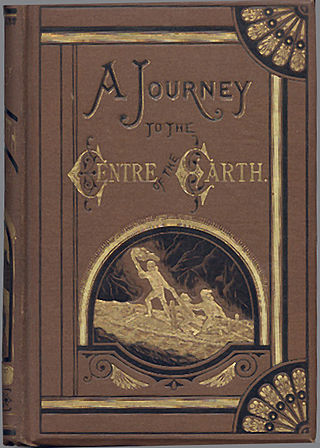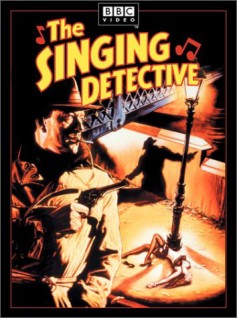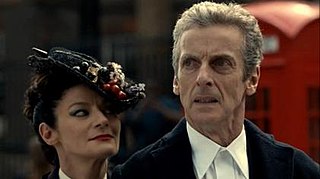
Doctor Who is a British science fiction television series broadcast by the BBC since 1963. The series, created by Sydney Newman, C. E. Webber and Donald Wilson, depicts the adventures of an extraterrestrial being called the Doctor, part of a humanoid species called Time Lords. The Doctor travels in the universe and in time using a time travelling spaceship called the TARDIS, which externally appears as a British police box. While travelling, the Doctor works to save lives and liberate oppressed peoples by combating foes. The Doctor often travels with companions.

The Darling Buds of May is a British comedy drama television series, produced by Yorkshire Television for the ITV network, first broadcast between 7 April 1991 and 4 April 1993. The first six episodes of Series 1 and the first two of Series 2 are adaptations of the 1958 novel of the same name, and three of its four sequels, by H. E. Bates. The remaining episodes are original storylines based on the same format.

Quatermass and the Pit is a British television science-fiction serial transmitted live by BBC Television in December 1958 and January 1959. It was the third and last of the BBC's Quatermass serials, although the chief character, Professor Bernard Quatermass, reappeared in a 1979 ITV production called Quatermass. Like its predecessors, Quatermass and the Pit was written by Nigel Kneale.

Journey to the Center of the Earth, also translated with the variant titles A Journey to the Centre of the Earth and A Journey into the Interior of the Earth, is a classic science fiction novel by Jules Verne. It was first published in French in 1864, then reissued in 1867 in a revised and expanded edition. Professor Otto Lidenbrock is the tale's central figure, an eccentric German scientist who believes there are volcanic tubes that reach to the very center of the earth. He, his nephew Axel, and their Icelandic guide Hans rappel into Iceland's celebrated inactive volcano Snæfellsjökull, then contend with many dangers, including cave-ins, subpolar tornadoes, an underground ocean, and living prehistoric creatures from the Mesozoic and Cenozoic eras. Eventually the three explorers are spewed back to the surface by an active volcano, Stromboli, located in southern Italy.

A for Andromeda is a British television science fiction drama serial first made and broadcast by the BBC in seven parts in 1961. Written by cosmologist Fred Hoyle, in conjunction with author and television producer John Elliot, it concerns a group of scientists who detect a radio signal from another galaxy that contains instructions for the design of an advanced computer. When the computer is built, it gives the scientists instructions for the creation of a living organism named Andromeda, but one of the scientists, John Fleming, fears that Andromeda's purpose is to subjugate humanity.

The Singing Detective is a BBC television serial drama, written by Dennis Potter, starring Michael Gambon and directed by Jon Amiel. Its six episodes are "Skin", "Heat", "Lovely Days", "Clues", "Pitter Patter" and "Who Done It".

Quatermass II is a British science fiction serial, originally broadcast by BBC Television in the autumn of 1955. It is the second in the Quatermass series by writer Nigel Kneale, and the oldest of those serials to survive in its entirety in the BBC archives.
David John Lee Maloney was a British television director and producer, best known for his work on the BBC science-fiction series Doctor Who, Blake's 7 and The Day of the Triffids. The Guardian described him on his death as "one of that old school who could turn out 30-minute dramas in two days shooting time".
Dark fantasy is a subgenre of fantasy literary, artistic, and cinematic works that incorporate disturbing and frightening themes. It often combines fantasy with elements of horror, possessing a dark and gloomy tone or an atmosphere of horror and dread.

Nicola Jane Bryant is an English actress best known for her role as Peri Brown, a companion to both the Fifth and Sixth Doctors, in the BBC science fiction television series Doctor Who, from 1984 to 1986.

Planet of Giants is the first serial of the second season in the British science fiction television series Doctor Who. Written by Louis Marks and directed by Mervyn Pinfield and Douglas Camfield, the serial was first broadcast on BBC1 in three weekly parts from 31 October to 14 November 1964. In the serial, the First Doctor, his granddaughter Susan Foreman, and her teachers Ian Chesterton and Barbara Wright are shrunk to the size of an inch after the Doctor's time machine the TARDIS arrives in contemporary England.

Star Cops is a British science fiction television drama series first broadcast on BBC2 in 1987. It was devised by Chris Boucher, a writer who had previously worked on the science fiction television series Doctor Who and Blake's 7, as well as crime dramas such as Juliet Bravo and Bergerac.

The Paradise of Death is a 5-part BBC radio drama, based on the long-running British science fiction television series Doctor Who, and starring Jon Pertwee as the Doctor.

Bleak House is a BBC television drama first broadcast in 1985. The serial was adapted by Arthur Hopcraft from the Charles Dickens novel Bleak House (1853).

Philip Saville was a British director, screenwriter and former actor whose career lasted half a century. The British Film Institute's Screenonline website described Saville as "one of Britain's most prolific and pioneering television and film directors". His work included 45 contributions to Armchair Theatre (1956–1972) and he won two Best Drama Series BAFTAs for Boys from the Blackstuff (1982) and The Life and Loves of a She-Devil (1986).

Representations of gorillas are common in popular culture in the Western world with the full range of electronic media having gorillas as mascots, gorillas behaving like humans, and humans behaving like gorillas.

The Changes is a British children's science fiction television serial filmed in 1974 and first broadcast in 1975 by the BBC. It was directed by John Prowse and is based on the trilogy written by Peter Dickinson: The Weathermonger (1968), Heartsease (1969), and The Devil's Children (1970).

Ray "Crash" Corrigan was an American actor most famous for appearing in many B-Western movies. He also was a stuntman and frequently acted as silver screen gorillas using his own gorilla costumes.

The Fruit Machine is a 1988 British film thriller starring Tony Forsyth, Emile Charles, Bruce Payne and Robbie Coltrane in the role of "Annabelle." The film, which was directed by BAFTA-winner Philip Saville, is about two gay teen friends who are running from an underworld assassin and the police. It was produced by UK TV company Granada Productions. The film showcases the rising careers of actors Coltrane and Payne, as well as a future Academy Award winner, composer Hans Zimmer, who wrote the soundtrack.

"Dark Water" is the eleventh episode of the eighth series of the British science fiction television programme Doctor Who. It was first broadcast on BBC One on 1 November 2014. The episode was written by showrunner and head writer Steven Moffat and was directed by Rachel Talalay. It is the first of a two-part story; the concluding episode "Death in Heaven", the finale of the eighth series, aired on 8 November.

















